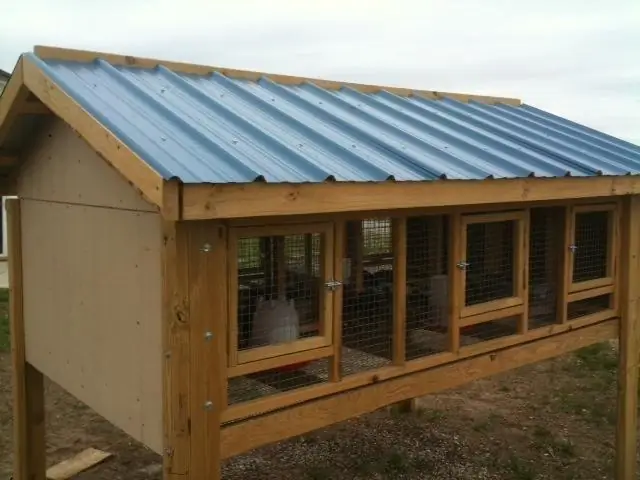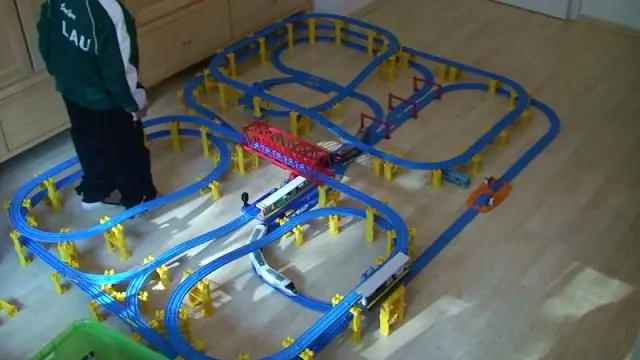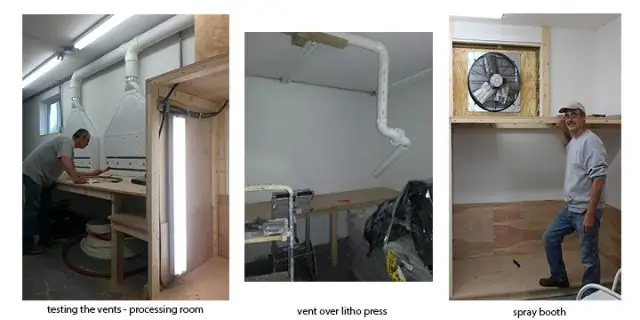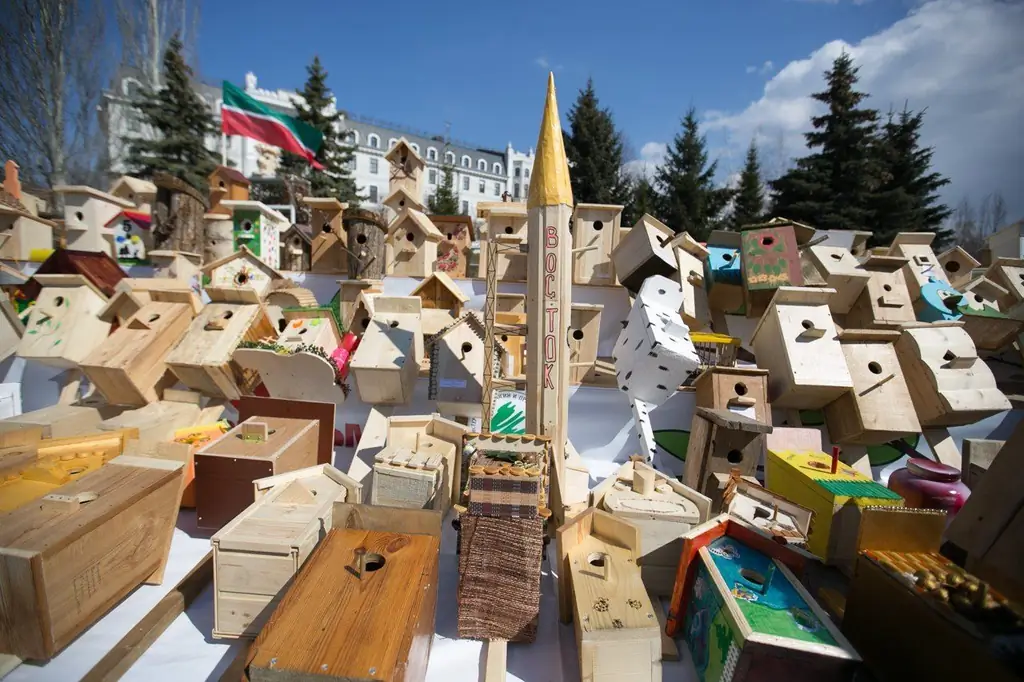
Table of contents:
- How to make budget models of cages for quail with your own hands
- Basic requirements for quail cages
- Materials from which you can make cells yourself
- Recommended designs for birds of different ages
- Cage sizes and layouts depending on the number of birds
- Multi-level cell batteries
- Drawings and step-by-step manufacturing instructions
- How to make a brooder for little chicks yourself
- Author Bailey Albertson [email protected].
- Public 2024-01-17 22:26.
- Last modified 2025-06-01 07:32.
How to make budget models of cages for quail with your own hands

Due to the simplicity of its content, the home quail enjoys the status of the owner's favorite, providing them with useful products. Proper housing arrangement for these birds is a guarantee of good growth and reproduction, allowing you to get enough meat and eggs. You can make cages for quails with your own hands using simple diagrams and drawings.
Content
- 1 Basic requirements for quail cages
-
2 Materials from which you can make cells with your own hands
2.1 Various designs - gallery
-
3 Recommended designs for birds of different ages
3.1 Brooders for quails - gallery
-
4 Sizes and layouts of cages depending on the number of birds
4.1 Cage size depending on the number of poultry raised for meat - table
- 5 Multi-level cell batteries
-
6 Drawings and step-by-step manufacturing instructions
- 6.1 Making a cage from galvanized mesh - video
-
6.2 Plywood or wood cages for young and adult birds
6.2.1 Do-it-yourself plywood cage option - video
-
6.3 Plastic cage
6.3.1 Making a simple plastic cage - video
-
7 How to make a brooder for little chicks yourself
- 7.1 Dimensions of required parts - table
- 7.2 Brooder for do-it-yourself quail - video
Basic requirements for quail cages
When deciding to have quail, it is advisable to worry in advance about the presence of strong and comfortable cages that will provide the necessary conditions for the life of birds. Designs can be purchased in specialized stores, but for lovers of reasonable savings, their own creation would be the best option. This will not only save money, but also optimize the space as much as possible.

For normal growth and development, quails need comfortable living conditions
Certain requirements are imposed on the conditions of detention and cages for quails.
- Lack of dampness in the room, compliance with a certain temperature regime in it within 18-20 degrees. This significantly reduces the number of fatal diseases in birds.
- When settling quails in cages, it is important to observe their number. So, ten birds selected for breeding will need a cage of 15-17 dm². And to obtain edible eggs and meat, the stocking density should not exceed 10-12 dm².
- The size of the mesh cells should be selected depending on the age group of the birds. Too large is not suitable for young animals, chicks will easily make their way through it.
When creating a cage, it should be remembered that quails are very shy and do not tolerate a large number of external stimuli. Protect them from drafts, loud noise and excessive light. Regardless of the type of construction chosen, the cage should be as closed as possible and made of durable material.
Materials from which you can make cells yourself
The most acceptable options for creating the back and side walls are boards, galvanized, plastic and plywood. And the front of the cage is traditionally made from a medium-sized mesh or twigs located at a short distance from each other. There is a hinged feeder in front.

The front of the cage is made from a lattice, leaving a hole for feeding the birds
To maintain cleanliness in a quail cage, its bottom is made of a fine mesh, under which a pallet should be installed, allowing to remove accumulated droppings. These homemade cages can be stacked one on top of the other, which saves indoor space.
Cage parts are made from different materials:
- cage frames can be made of a metal profile or wood, which provides the required rigidity to the product. However, there are models and frameless structures made of one-piece mesh fabric;
- the material most suitable for the manufacture of pallets and feeders is galvanized steel. It eliminates the appearance of oxidations and allows for high-quality cleaning of droppings;
- when making cages from plywood and natural wood, it is advisable to take care of their impregnation with special antiseptics or coating with water-based varnish. They provide additional security and prevent the growth of mold and small parasites.
Various designs - gallery
-

Composite material cage -
You can make your own cage from composite materials
-

Frame cage - Frame cages are made from a metal profile
-

Mesh cage - The mesh cage must be reinforced with dense materials: wood, plywood or fabric
-

Multi-tiered battery - Quail battery helps save space
Recommended designs for birds of different ages
When making cages for quails, it is very important to take into account the age of the birds and the ultimate goal of keeping. There are several basic types of structures:
- brooders: for young chicks from birth up to 10 days;
- cages for young animals up to 45 days old;
- constructions that contain adult birds;
- cells for obtaining food eggs;
- separate premises for the parent herd;
- special cages for fattening meat.
Newly hatched chicks are immediately placed by professional breeders in specially equipped brooders. They allow you to maintain the necessary temperature for the harmonious and correct development of the young. In addition, such structures must be additionally equipped with a 24-hour lighting system, without which the full growth of chicks is impossible. These cages should be of a closed type with a mesh size of 10x10 mm. The feeder and drinker are placed inside the box. It is desirable that the quails are kept in such conditions for 2-3 weeks from the moment of birth.
Quail brooders - gallery
-

Quail brooder - It is necessary to maintain a comfortable temperature and light inside the brooder.
-

Open brooder - Brooder helps to grow up to 90% of young quail
-

Homemade brooder for young quail - Brooder provides good conditions for the growth and development of quail
The grown quail should be transferred to a new cage equipped with a larger floor net, which allows for thorough cleaning. The recommended cell size is 16x24 mm. The structure itself can also be made from a mesh with a mesh size of 24x24 mm. The best option for adult quails is combined cages made of plywood and mesh. To ensure the comfort of the hens, the bottom of the structure should be sloped from 7 to 8 degrees towards the drinker. An egg collector is needed in the cage, which can be organized by extending the length of the bottom, equipped with a limiter. In this case, the mesh size of the bottom mesh should be 16x24 mm, and a mesh with a mesh size of 32x48 mm is suitable for creating the side walls.
Cage sizes and layouts depending on the number of birds
The main task of a poultry breeder breeding quails for the purpose of obtaining meat is to create conditions under which the birds will be inactive. For this, during the manufacture of the cage, the parameters of its height are reduced. Such structures are traditionally made of a mesh with a cell of 32x48 mm, which provides a sufficient level of lighting that affects the growth of the bird.
Cage size depending on the number of poultry raised for meat - table
| Number of birds (pcs.) | Cage bottom size |
| 5 | 25 x 25 cm |
| ten | 35 x 27.5 cm |
| twenty | 50 x 35 cm |
| thirty | 65 x 47.5 cm |
| 40 | The structure consists of two compartments, each of which is suitable for breeding 20 birds. |
| fifty | 105 x 82.5 cm |
| one hundred | The cage consists of 4 compartments, each of which contains 25 heads. |
The optimum construction height is usually 240-250 mm. For the living of one quail, according to approximate calculations, 1.5 dm 3 of the area of the entire structure is required. With a tighter planting, it will not be possible to achieve good egg production and weight gain.

Cage sizes suitable for keeping different numbers of quails
If we are talking about keeping adults in order to obtain the maximum number of eggs, then the technical characteristics of the cage can be as follows:
- height - 170-240 mm;
- width - 1 thousand mm;
- depth - 600 mm;
- drinking area - 10 heads for one drinker;
- feeding front - 25 mm per head.

Quail net cage with optimal sizes
A homemade feeder, used both for breeding poultry for meat and for increasing egg production, must be of optimal size:
- width - 50 mm;
- outer side height - 80 mm;
- inner side height - 50 mm.

Quail cage cutaway
Multi-level cell batteries
Often, for the rational use of space in the room, the cells are stacked on top of each other, creating a single block in several tiers.

The quail battery is a good solution to save space
Consider some nuances when creating cell batteries:
- raise the lowest cage 80-100 cm above the floor. This allows for comfortable handling and protects the birds from the unwanted effects of drafts;
- the maximum number of tiers in the battery should be equal to five, provided that no more than 30 quails are kept in one cage. In this way, it is possible to avoid pushing the mesh floor, as a result of which the eggs stop rolling into the egg collectors.
- place the door in front of the structure. This option is convenient when there are several cell batteries next to each other.
- for maximum stability, attach the battery to the wall of the room. This will help prevent the entire structure from falling suddenly.

The cage battery needs to be fixed to the wall for more stability
Drawings and step-by-step manufacturing instructions
One of the simplest quail cages is a galvanized mesh construction. It is useful for the temporary keeping of already grown birds and can act as an element of a multi-tiered structure. To make it you will need:
- galvanized mesh - 1 m²;
- wire or plastic clamps;
- cutting tool.
-
Measure 105x70 cm of material and cut out the main workpiece.

Main blank Mesh blank
- After that, from the remaining parts of the mesh, cut out two side walls measuring 30x30 cm.
-
On the main workpiece, make bends corresponding to the following parameters: the height of the front wall is 16 cm, the rear wall is 14 cm, the width is 30 cm.

Making a fold Bend the mesh according to the specified parameters
-
The rest of the material will be useful for organizing the egg collector. When creating it, be sure to fold the end to a height of 3 cm to prevent the eggs from rolling out.

Build an egg collector The structure with the egg collector must be folded upwards
-
Fasten the structure with plastic clamps or pieces of wire.

Mounting option Wire mesh fasteners
- Equip the floor of the cage with an additional mesh with a smaller mesh cut to size. Secure it with wire brackets.
-
At the top of the structure, cut out a door that is large enough to fit the bird inside.

Ready product Galvanized mesh quail cage
Making a cage from galvanized mesh - video
Any materials treated with antiseptics can be used to make a manure collector. In this case, the side walls of the structure act as a support, allowing you to easily insert a manure collector of the required size.
Plywood or wood cages for young and adult birds
Cages made of plywood are no less comfortable and functional. The cheapness of this material allows you to significantly save on their production. Such structures are suitable for keeping a small number of birds and are the best option for young animals.

The plywood cage is great for raising young
The process of assembling a plywood cage involves the initial creation of a reliable frame. However, in some cases, the walls can be fastened using wooden blocks.
Instructions for making a cage from plywood with your own hands.
-
First, cut plywood or fiberboard based on the following dimensions: side walls - 350x200 mm, ceiling - 700x350 mm, end wall - 700x200 mm.

Cut plywood Preparing plywood for cutting
2. Fit the sides with holes with a diameter of 30 mm, which will provide the required level of ventilation.
3. To maintain hygienic standards, coat the wooden workpieces with a colorless water-based varnish or antiseptic.
4. Start assembling the box. Use self-tapping screws and glue as fasteners for extra strength.

Plywood box Fasten the details of the plywood box with self-tapping screws and glue
5. From a grid with a mesh of 16x24 mm, cut out a workpiece for the floor measuring 700x350 mm.
6. Fix it to the main box with nails, while ensuring the angle of inclination to the front wall of 7-10 degrees.
7. Attach the mesh door to the front wall of the structure using special canopies.
8. Equip the finished cage with feeders and drinkers.

Cage for adult quails DIY plywood cage
DIY plywood cage - video
Plastic cage
A plastic quail cage is a simple and cost effective option. It can be made from ordinary crates used as packing elements. The advantages of a plastic cage are low cost, ease of manufacture, maintenance and durability.

A plastic cage is the most economical and easy-to-care homemade option
To create such a cell, you will need:
- three boxes of equal dimensions;
- flexible strong wire;
- file for work on plastic and metal;
- sharp knife.
Instructions for collecting cells.
- Cut off all protruding parts of the main box along the top edge.
- Dock it with the bottom drawer using the existing legs and grooves.
- At the top, fasten the second low box. Use mounting double-sided tape, rope or wire as fasteners.
- Attach a door cut like a hatch to the roof of the cage. To do this, make slits on three sides, and bend the fourth up. It is advisable to attach a wire loop to the hatch.
- Cut the outer front wall in several places for bird feeding.
- Mount a trough-shaped feeder and a drinking bowl below.
Making a simple plastic cage - video
How to make a brooder for little chicks yourself
Quail chicks require special conditions that a brooder can provide. To make it you will need:
- plywood sheet 10 mm thick, size 1525x1525 mm;
- wooden beam with a section of 20x30 mm and a length of 1200 mm;
- galvanized mesh with a mesh of 10x10 mm;
- PVC panel;
- self-tapping screws;
- two piano loops 300 mm each.
Dimensions of the required parts - table
| Details | Quantity (pcs.) | Size (mm) |
| Side walls | 2 | 480x500 |
| Rear wall, bottom and ceiling | 3 | 700x500 |
| Pallet skid and mesh bottom | 6 | 4 things. - 460x20, 2 pcs. - 660x20 |
| Top part | one | 640x50 |
| Bottom part | one | 640x60 |
| Sidewalls | 2 | 400x50 |
| Frame for mesh bottom | 4 | 2 pcs. - 660x20 and 2 pcs. - 480x20 |
| Doors | 2 | 400x445 |
| Pallet frame slats | 4 | 2 pcs. sizes 655x20 and 475x20 |
| Face detail | one | 700x95 |
Instructions for making a brooder.
- First, you need to make blanks from which the main structure will be assembled, equipped with a pallet. To do this, cut four strips of 460x20 mm from plywood. They will serve as side walls. And also you will need two strips for the end face measuring 960x20 mm.
-
Then fasten the strips with self-tapping screws as shown in the photo in steps 2 and 3.

Blanks for brooder Fasten plywood blanks for brooder securely with self-tapping screws
-
Create a frame from the pre-prepared parts, which is set as shown in the photo (steps 4 and 5). Install the door hinges on the front of the side strips. Attach the structure to the main body.

Fastening the front to the main box Creating a basic brooder structure
- This is followed by the stage of making a mesh bottom resembling a sandwich. Fix the cut blank from the mesh between the wooden planks using self-tapping screws (step 6).
-
The litter box is made in the same way as the floor, but instead of a mesh, use a solid material. On the front side, equip the structure with an additional bar to prevent spilling of droppings (step 7).

Mesh floor and pallet The mesh floor and the brooder pan are made in the same way
Do-it-yourself brooder for quail - video
Keeping quails at home is a simple and profitable business. And cages created from scrap materials will help provide birds with the necessary conditions for harmonious development and growth.
Recommended:
How To Make A Bar Stool With Your Own Hands From Wood, Metal And Other Materials + Drawings, Photos And Videos

Bar stools manufacturing options. Required tools, materials used. Step-by-step description of the manufacturing process with a photo
How To Make A Veranda With Your Own Hands To The House - Instructions, Projects, Drawings, Photos And Videos

The article describes how to build a veranda close to the house with your own hands
How To Make A Kite With Your Own Hands At Home: Options With Drawings And Sizes + Photos And Videos

DIY kite: the necessary materials, diagrams, drawings, manufacturing steps. How to make a kite of different shapes. Secrets of a Successful Launch
How To Make A Potbelly Stove From A Gas Cylinder With Your Own Hands: Photos And Drawings, Videos And Secrets

Making furnaces of vertical and horizontal types from a gas cylinder with your own hands. Recommendations for the operation and repair of such stoves
How To Make A Birdhouse Out Of Wood With Your Own Hands: Options With Drawings And Diagrams + Photos And Videos

How to make a wooden birdhouse with your own hands. The right tree, the necessary materials and tools, drawings, step-by-step manufacturing instructions. Video
